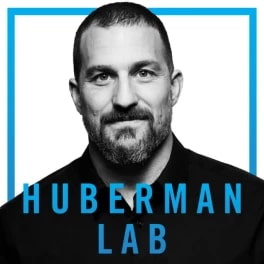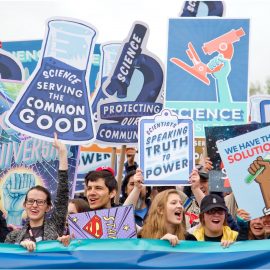

This article is an excerpt from the Shortform guide to "Huberman Lab". Shortform has the world's best summaries and analyses of books, podcasts, and more.
Like this article? Sign up for a free trial here.
Is the amount of willpower you have limited? Does your glucose consumption affect it?
According to Roy Baumeister, willpower is a finite resource that can be depleted. On a thought-provoking episode of the Huberman Lab podcast, Dr. Andrew Huberman examined the debate surrounding Baumeister’s “ego depletion” theory.
Continue reading to learn more about this theory and the controversy it provoked.
Roy Baumeister on Willpower
According to Roy Baumeister, willpower is limited and connected to the amount of glucose you consume. In a thought-provoking podcast episode, Dr. Huberman explored this concept of ego depletion by Roy Baumeister, alongside the ongoing debate surrounding its validity. Baumeister’s research, which links glucose consumption to cognitive stamina, has sparked controversy, with Dr. Carol Dweck disputing the notion that willpower solely relies on glucose.
Dr. Huberman further examined the intricacies of willpower, emphasizing that its invocation draws upon various forms of energy. This insight suggests that the function of willpower extends beyond mere management of glucose levels, adding a layer of complexity to the understanding of this fascinating topic.
Context
In the realm of psychology, the concept of willpower has been the subject of ongoing debate and sheer fascination. At the heart of this discourse lies the theory of ego depletion, originally introduced by social psychologist Roy Baumeister in the late 1990s. Baumeister proposed that willpower, considered a limited resource, could be depleted through exertion, resulting in diminished self-control and decision-making capabilities. This theory suggests that acts requiring self-control or decision-making drain our finite reserve of willpower. Also, Baumeister’s research unveiled a connection between glucose consumption and cognitive stamina, emphasizing the significance of maintaining optimal glucose levels to sustain willpower over time.
But, recent disputes have arisen, challenging the underpinnings of ego depletion theory and its reliance on glucose as a determinant of willpower. Dr. Carol Dweck, a prominent figure in this ongoing dialogue, questions the correlation between glucose consumption and cognitive stamina posited by Baumeister’s research. These controversies have sparked discussions surrounding alternative perspectives on willpower and its intricate nature.
At the core of this ongoing debate are two essential themes: first, a challenge to the notion of willpower as a simple, finite resource, and second, an exploration of broader energy factors that influence self-control beyond glucose levels. Researchers assert that unraveling the interaction between motivation and willpower could yield valuable insights into its complexities. Also, a deeper understanding of the neural mechanisms underlying self-control holds promise for shedding light on these complex processes.
As we look ahead, it’s evident that researchers remain dedicated to unraveling the intricacies surrounding self-control and its determining factors, striving to gain a comprehensive understanding of human behavior. Ongoing studies continue to explore alternative models and mechanisms relating to willpower, ensuring that this captivating debate within the field of psychology will persist and evolve long into the future.
More Perspectives
The complex nature of willpower sparks ongoing scientific debate, including differing perspectives on ego depletion and glucose’s role. While acknowledging willpower’s complexity, claims about diverse energy forms enabling self-control require clarification. Without properly defining or quantifying these proposed energy types, substantiating evidence remains insufficient. Also, contesting glucose’s influence without offering alternative explanations or data weakens that stance. We must consider consistent empirical support for links between glucose and cognitive stamina, indicating a potential role.
But, we need not wholly reject this connection due to conflicting interpretations. Controversies deserve examination through the lens of research affirming this relationship. Dismissing it solely over disputes overlooks considerable supportive evidence.
Related Reading
Have We Been Thinking About Willpower the Wrong Way for 30 Years?
November 23, 2016. Not so long ago, my post-work routine looked like this: After a particularly grueling day, I’d sit on the couch and veg for hours, doing my version of “Netflix and chill.”
What you need to know about willpower: The psychological science
Willpower researcher Roy Baumeister, PhD, a psychologist at Florida State University, describes three necessary components for achieving objectives: First, he says, you need to establish the motivation for change and set a clear goal. Second, you need to monitor your behavior toward that goal. The third component is willpower.
Does willpower depend on the amount of glucose in the body?
It’s all too rare to see critique get voiced clearly in psychology. There is a follow-up too. His peeve seems to be mostly the resource model, not the idea that glucose has some causative influence.
The Willpower Instinct by Kelly McGonigal
Most people think of willpower as a virtue, an admirable trait that we strive for but don’t always achieve. But science tells a different story. Willpower—the ability to exercise self-control when you need it—is an instinct that’s wired into our brains. Yet it seems like willpower vanishes at crucial moments, like when your coworker shows up with a box of donuts.
To harness your innate willpower, you need to understand what factors make you give up your self-control. In The Willpower Instinct, Stanford psychology professor Kelly McGonigal details how our natural willpower gets compromised by stress, distraction, lack of sleep and exercise, and a host of other factors. Using the latest psychology and neuroscience research, she offers strategies to help us defeat procrastination, control cravings, and achieve our goals.

———End of Preview———
Like what you just read? Read the rest of the world's best guides to Huberman Lab" at Shortform.
Here's what you'll find in our full Huberman Lab episode summaries:
- How science can be applied to improve your daily life
- Information about key scientific tools and how they impact society
- How technology, biology, and health are connected






